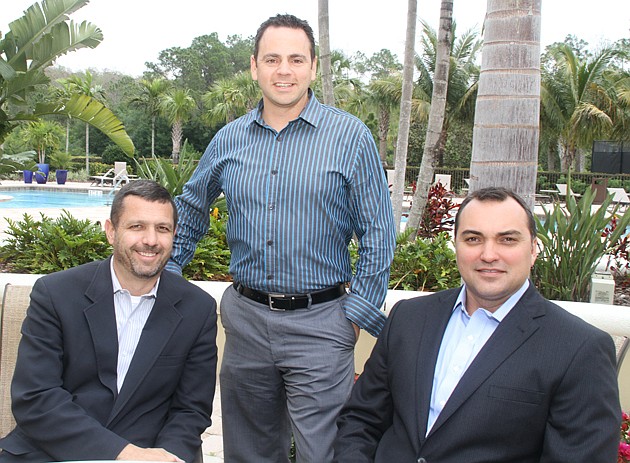- November 25, 2024
-
-
Loading

Loading

When Mark Shannon enlisted in the Army shortly after 9/11, he didn't realize it would turn out years later to be a smart business decision.
Ten months of combat patrols from Forward Operating Base Salerno in Afghanistan left him disabled. He returned home in 2005, and after earning a drafting and design degree from Edison State College, Shannon got a job at Architecture Inc. in Fort Myers.
Shannon is reluctant to talk about his experience. “I have continuing issues,” he says.
But it wasn't until last year that he and his colleagues, architects Damon Romanello and Ted Sottong, realized they could create a lucrative business around Shannon's wartime experience. That's because the federal government sets aside millions of dollars of business for disabled-veteran-owned small businesses.
“Through Architecture Inc. we had partnered with other veterans-disabled businesses, and they were less than desirable,” says Romanello.
Romanello and Sottong broke away from Architecture Inc. in October 2011, splitting with partners in Virginia, and formed a new company called Studio+ in Fort Myers. Romanello says that gave them the freedom to create a new company this year called Studio+ Veteran Ops, a limited-liability company with Shannon owning 52% and the remainder split between Romanello and Sottong. “We wanted to expand the business,” Romanello says.
Veteran Ops hasn't landed any projects yet because the business is only a few months old, but it's in the running for at least three health care projects for the Veterans Administration.
“Health care is our specialty,” says Shannon. For example, the Studio+ team designed Park Royal Hospital in Fort Myers, two facilities for Hope Hospice in Lee County and the Cleveland Clinic in Weston, among others.
Studio+ does work beyond the state's borders, too. “We're doing a new hospital in Mississippi,” says Romanello, who declines to cite revenues or other financial information. “Ninety five percent of what we do is health care. It's a market we've been entrenched in.”
Studio+ has 15 employees and Romanello says any of them could be dedicated to Veteran Ops projects in the future. The partners established a separate architecture company in California last year, so Romanello says they have experience with splitting the accounting properly.
But getting certified as a disable-veteran-owned small business by the federal government was no easy task. The Veterans Administration required extensive documentation, including detailed information such as operating agreements and personal tax returns from the principals, and it often required the partners to answer detailed follow-up questions within days. Failing to answer questions in a timely way risked not becoming certified.
“It took us a full year to go through it,” says Shannon. “Every two years we have to rectify.”
Romanello says the Veterans Administration denied about half of the companies that applied for certification in 2011. “It's their reputation on the line,” Romanello says.
The Veterans Affairs certification is rigorous because procurement dollars are dedicated to these veteran-owned companies. No other businesses can compete for the work that's set aside for them, only other disabled-veteran-owned small businesses.
For now, Studio+ Veteran Ops is going after projects totaling about $20 million in construction value. But there's the promise of much more. In 2011, more than $3 billion worth of projects were set aside for disabled-veteran-owned small businesses.